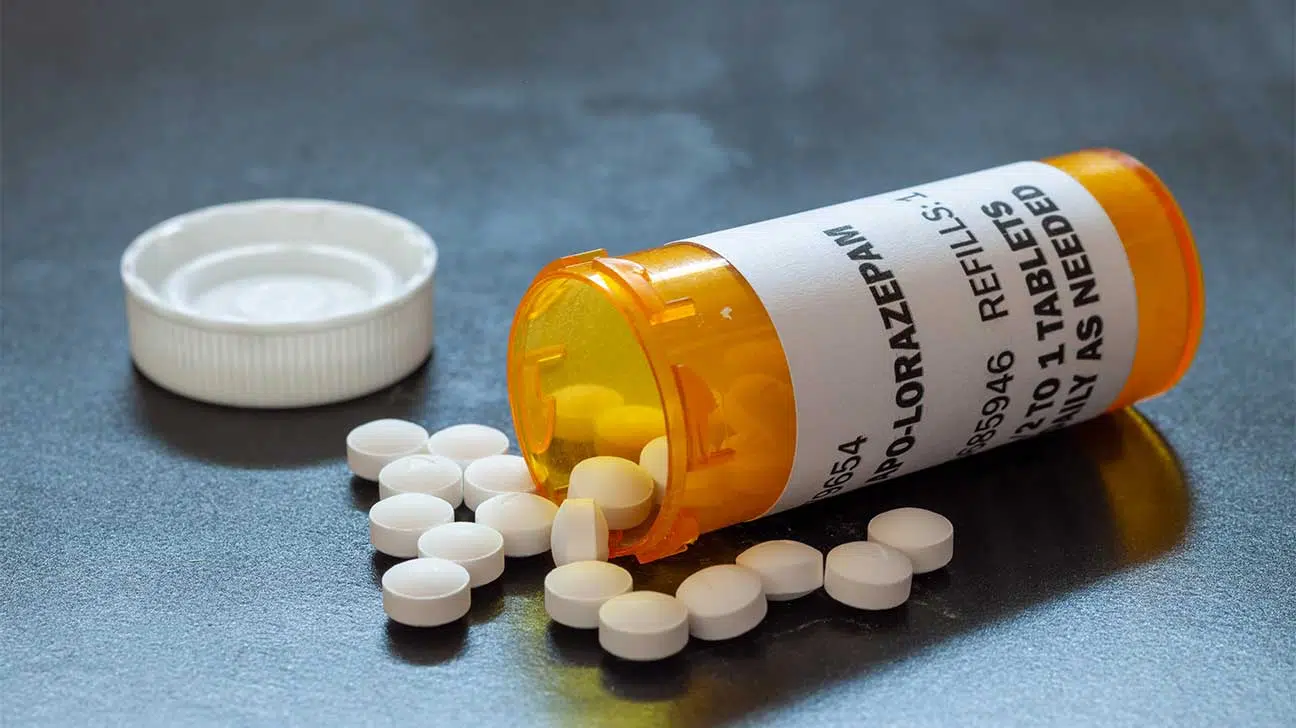
Ativan is the brand name for the benzodiazepine drug lorazepam. Drugs like alprazolam (Xanax), diazepam (Valium), and clonazepam (Klonopin) are also benzodiazepines.
All benzos, including Ativan, are classified as Schedule IV controlled substances, even though they are prescription drugs.
The DEA, in conjunction with the Food and Drug Administration (FDA), determines controlled substances based on their potential for misuse and addiction.
Why Is Ativan A Controlled Substance?
Ativan is a controlled substance because it has the potential to be abused and for some level of physical and psychological dependence on the substance to form.
Ever since the Controlled Substances Act of 1970, all drugs, whether they have a medical use or not, have to be assessed for abuse potential and regulated if needed.
What Controlled Substance Classification Is Ativan?
Ativan is a Schedule IV controlled substance.
There are five schedules of controlled substances, with Schedule I being drugs that have no medical use, and Schedule V being drugs that have a medical use and very low risk of dependence or abuse.
Schedule IV drugs are said to have a lower potential for abuse than Schedule III drugs, but they can still be abused and can be dangerous.
What Ativan Is Used For
Ativan is a medication that is prescribed to treat anxiety disorders as well as panic attacks and seizures. It is commonly used to calm anxiety symptoms before surgery.
When taken in accordance with medical advice from a healthcare provider, Ativan is relatively safe.
Ativan acts on the central nervous system to deliver calming effects and prevent seizures.
How Ativan Leads To Misuse
Ativan delivers its calming effects by enhancing the activity of a neurotransmitter in the brain called GABA.
GABA is naturally responsible for giving a calming effect by blocking certain activity in the brain. By enhancing its activity, this calming effect is also enhanced.
The problem is that people can become dependent on Ativan and other benzos to enhance GABA.
When someone stops taking the drug, they might have withdrawal symptoms that include increased anxiety.
People can also develop a tolerance to Ativan, leading to them taking higher doses to achieve the same effects.
Ativan might also have some pleasurable effects when abused. All of these factors can contribute to Ativan drug abuse.
Side Effects Of Ativan Abuse
Misusing Ativan has many negative side effects.
Some of these effects, such as sedation, might appear similar to those of opioids like fentanyl, hydrocodone, methadone, or oxycodone (Oxycontin).
Side effects of Ativan abuse may include:
- drowsiness
- dizziness
- loss of appetite
- nausea
- sleeping problems
- physical dependence
People should also be aware of drug interactions that make Ativan use even more dangerous.
Dangers Of Long-Term Use Of Ativan
Abusing Ativan for a long time can lead to severe physical and mental health issues.
Dangers of long-term Ativan use include:
- mood swings
- suicidal thoughts
- depression
- worsened anxiety
- withdrawal symptoms if the person stops taking Ativan
- increased risk of Alzheimer’s disease
- pregnancy and breastfeeding issues
- heart and blood pressure problems
Treatment Options for Ativan Addiction
Ativan addiction is relatively rare, but it can happen and that is why the drug is listed as a controlled substance.
Healthcare professionals prescribing Ativan should always be aware of the drug’s somewhat high potential for abuse and take the necessary precautions.
Inpatient Detox
If Ativan addiction does occur, treatment can help. Treatment programs for Ativan addiction often start with inpatient detox.
Inpatient detox may be recommended for people with an Ativan addiction because benzodiazepine withdrawal can be quite severe and may include symptoms such as seizures and suicidal thoughts.
It is best to go through withdrawal in a medical environment where healthcare professionals are on hand to monitor and treat any symptoms that arise.
Inpatient Rehab
Once detox is complete and withdrawal symptoms have stabilized, treatment can begin. Inpatient rehab is often recommended for people with Ativan abuse issues.
Inpatient treatment programs are a great opportunity to take a period of time to focus only on one’s recovery from addiction.
Elements of addiction treatment that may be included for someone battling Ativan abuse include behavioral therapy, group counseling, and management of co-occurring disorders.
Outpatient Care
Outpatient addiction treatment allows a person to return to their daily life and responsibilities while continuing to receive care for their drug abuse.
Outpatient care is often suggested for people transitioning out of inpatient rehab. It is a good way to get re-accustomed to daily life while receiving support and continuing the path to recovery.
Find A Rehab Program For Ativan Abuse
If you or a loved one is battling Ativan abuse, help is available. Contact us today to learn about the best treatment centers for Ativan addiction.
Addiction Resource aims to provide only the most current, accurate information in regards to addiction and addiction treatment, which means we only reference the most credible sources available.
These include peer-reviewed journals, government entities and academic institutions, and leaders in addiction healthcare and advocacy. Learn more about how we safeguard our content by viewing our editorial policy.
- Drug Enforcement Administration (DEA)
https://www.deadiversion.usdoj.gov/schedules/ - National Library of Medicine
https://www.deadiversion.usdoj.gov/schedules/ - National Library of Medicine
https://www.ncbi.nlm.nih.gov/pmc/articles/PMC6007645/


